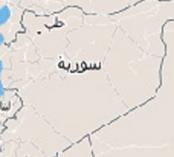
Months before a chemical weapons attack killed hundreds of Syrians and prompted threats of an American military strike, an anesthesiologist named Majid heard an explosion near his home in a Damascus suburb. He rushed to the makeshift hospital where he works and found patients with itching skin, burning eyes and shortness of breath.
Majid, who gave only his first name to protect his safety, collected hair and urine samples, clothing, tree leaves, soil and even a dead bird. He shared it with the Syrian American Medical Society, a humanitarian group that had been delivering such samples to American intelligence officials, as proof of possible chemical attacks.
“We kept communicating with the State Department about what is next — they told us that these are limited attacks,” said the society’s president, Dr. Zaher Sahloul, adding that he had spoken with Robert S. Ford, the American ambassador to Syria, and Samantha Power, then a White House aide and now the United Nations envoy. “It was very important for us to get this information out, but it took time to gain traction, and for the world to react.”
Now the world has reacted. United Nations inspectors have taken the first steps to destroy Syria’s chemical stockpile. But while the Obama administration claims credit for pushing President Bashar al-Assad into giving up the arsenal, some experts say the real credit lies with the doctors who risked their lives — and confronted thorny questions of medical ethics — to bring to light the use of chemical weapons.
The full article continues at http://www.nytimes.com/2013/10/22/health/in-syria-doctors-risk-life-and-juggle-ethics.html on The New York Times’ website.

